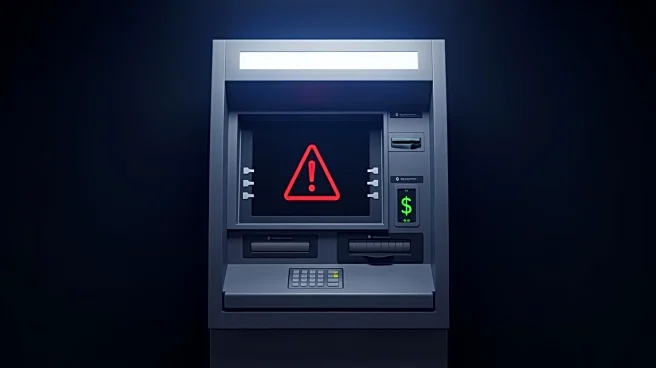What's Happening?
Crypto ATM scams have become a significant issue in the United States, with scammers tricking victims into depositing money into cryptocurrency ATMs under false pretenses. These scams often involve impersonating
trusted figures or institutions, such as customer service representatives or law enforcement officials, to manipulate victims into transferring their savings. The FBI reported nearly 11,000 complaints related to crypto ATM scams last year, with losses totaling approximately a quarter billion dollars. The scams are facilitated by the anonymity and speed of cryptocurrency transactions, making it difficult for authorities to recover the stolen funds.
Why It's Important?
The rise of crypto ATM scams highlights vulnerabilities in the financial system and the need for increased consumer protection and awareness. These scams disproportionately affect the elderly, but no demographic is immune. The financial losses can be devastating, wiping out life savings and leaving victims in financial distress. The situation underscores the importance of regulatory measures to protect consumers and the need for financial literacy programs to educate the public about the risks associated with cryptocurrency transactions. Additionally, it raises questions about the responsibility of crypto ATM companies in preventing such scams.
What's Next?
Efforts to combat crypto ATM scams may involve increased regulation and oversight of cryptocurrency transactions and ATMs. Law enforcement agencies are likely to continue investigating these scams, although the international nature of the crime presents challenges. Consumer protection agencies may also ramp up efforts to educate the public about the risks of crypto transactions and how to identify potential scams. The crypto industry may face pressure to implement more robust security measures to prevent fraudulent activities.
Beyond the Headlines
The ethical implications of crypto ATM scams are significant, as they exploit trust and manipulate individuals into financial ruin. The scams also highlight the broader issue of cybersecurity and the need for robust systems to protect personal and financial information. As the use of cryptocurrency becomes more widespread, the potential for similar scams may increase, necessitating ongoing vigilance and adaptation of security measures.









